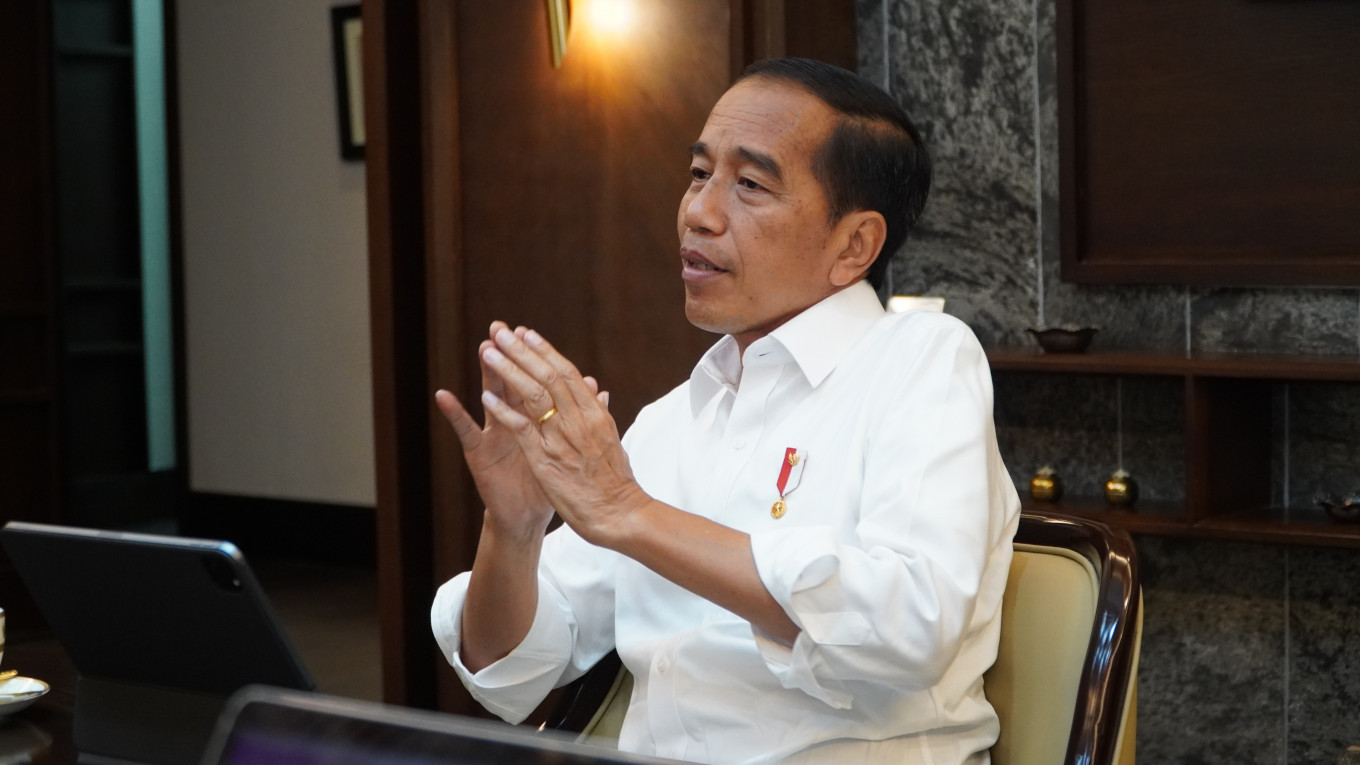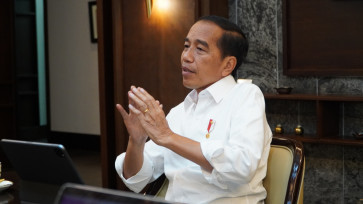Popular Reads
Top Results
Can't find what you're looking for?
View all search resultsPopular Reads
Top Results
Can't find what you're looking for?
View all search resultsAnalysis: Now Jokowi has a party he can call his own
Change text size
Gift Premium Articles
to Anyone

President Joko “Jokowi” Widodo now has a political party he can call his own after his youngest son Kaesang Pangarep took control of the Indonesian Solidarity Party (PSI) this week, only three days after he was inducted as a member. This prepares the ground for the incumbent to continue exercising some control over the 2024 presidential election, in which he is constitutionally barred from running after serving two five-year terms, and to remain active in politics after he steps down in October next year.
The stage is also set for a showdown between him and Megawati Sukarnoputri, the chair of the Indonesian Democratic Party of Struggle (PDI-P). Jokowi is still a card-carrying member of the party and Megawati has often disparagingly called him an “official” of the party who must obey the chair. With the PSI now under his control, indirectly through Kaesang, Jokowi has further empowered himself in his dealing, or rather his fights, with Megawati.
The PSI, which considers itself as a party for millennials, has endorsed the candidacy of defense minister Prabowo Subianto in the February presidential election. This is unlikely to change under Kaesang’s chairmanship. Jokowi has refrained from giving his endorsement to either Prabowo or the PDI-P’s presumptive presidential candidate, former Central Java governor Ganjar Pranowo. This is the first sign that Jokowi and Megawati are drifting apart politically.
Although he does not chair a political party, Jokowi has led Indonesia since 2014, winning the presidential election then, and the next one in 2019. Each time, he has governed through coalitions of several parties. He expanded the coalitions to prevent any party, including his own PDI-P, from being too dominant. He has mastered the art of coalition management, playing one party against another, to help sustain his power all this time.
Approaching 2024, Jokowi has been bending over backward to secure his power and influence. He sought to amend the Constitution that would have allowed him to run for a third term, but failed. He tried to get the Constitutional Court to lower the minimum age to run for president and vice president from 40 to 35 years, a move which would allow eldest son Gibran Rakabuming Raka to contest the election as running mate to Prabowo. A decision on this is imminent, the reason why Team Prabowo has yet to name its vice-presidential candidate.
Taking control of a political party, albeit small but with a lot of potential, is another sign of Jokowi’s political dynasty in the making. Son Gibran is mayor of Surakarta in Central Java and son-in-law Muhammad Bobby Alif Nasution is mayor of Medan in North Sumatra. Kaesang has been groomed to contest the election for the mayor of Depok, West Java, next year. The PSI is the missing piece in the creation of the Jokowi dynasty.

When news first emerged last week that Kaesang was joining the PSI, instead of the PDI-P to follow in his father’s footsteps, many people, including those in the PDI-P, did not give it much thought, dismissing it as his political right, of no consequence to the political and electoral landscapes.


















